
The availability of reliable, specific, and high-quality antibodies is an ongoing challenge for Parkinson’s disease research. CST has partnered with The Michael J. Fox Foundation for Parkinson’s Research (MJFF) to help identify gaps in antibody research tools and develop validated and reliable reagents to move PD research forward.
More than 10 million people worldwide are currently living with PD, yet much about the condition is poorly understood. Professionally, CST scientists are a passionate group of researchers who care deeply about understanding the underlying mechanisms of PD and enabling discovery research through the development of antibodies to critical targets. Personally, we are also driven by our own experiences with this debilitating neurological disease and are committed to facilitating the development of novel therapeutics.
As part of this partnership, CST scientists are working in collaboration with MJFF to develop and make available high-quality antibodies to important PD targets. These novel products will join our existing, extensive portfolio of antibodies and assay kits to interrogate key PD-associated proteins, including DJ-1 (PARK7), LRRK2/dardarin, α/β-synuclein (SNCA), and PINK1.
Here, we share a curated collection of scientific resources and the latest antibody tools to help accelerate your research.
Take control over your project with supply-stable monoclonal antibodies. Many of these products are also available carrier-free, or conjugated to fluorophores across the spectrum.
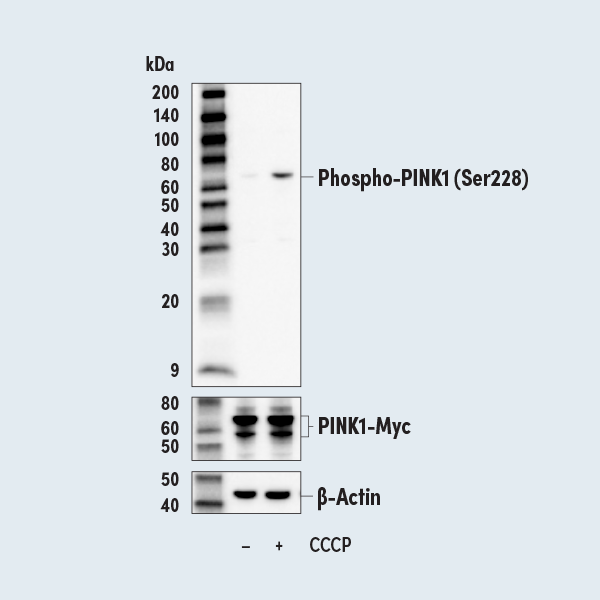
Phospho-PINK1 (Ser228): PD Mitochondrial Dysfunction
The autophosphorylation of PINK1 at Ser228 and Ser402 is necessary for Parkin recruitment to damaged mitochondria. PINK1 phosphorylates Parkin, promoting its translocation into mitochondria. Mutations in PINK1 are linked to autosomal recessive, early-onset PD, and are associated with loss of protective function, mitochondrial dysfunction, aggregation of α-synuclein, and proteasome dysfunction.
Phospho-PINK1 (Ser228) (E9K3K) Rabbit mAb #89010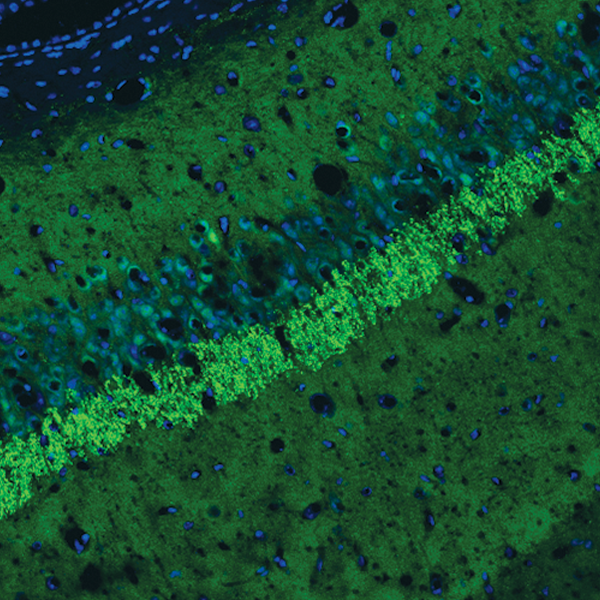
Phospho-α-Synuclein (Ser129): An Important PD Biomarker
Phosphorylation of α-Synuclein at Ser129 is highly toxic, causing degeneration of dopaminergic neurons. The mechanism by which neuronal degeneration occurs is an area of active research. Increased misfolding, aggregation, and accumulation of α-Synuclein phosphorylated at Ser129 are associated with PD.
Phospho-α-Synuclein (Ser129) (D1R1R) Rabbit mAb #23706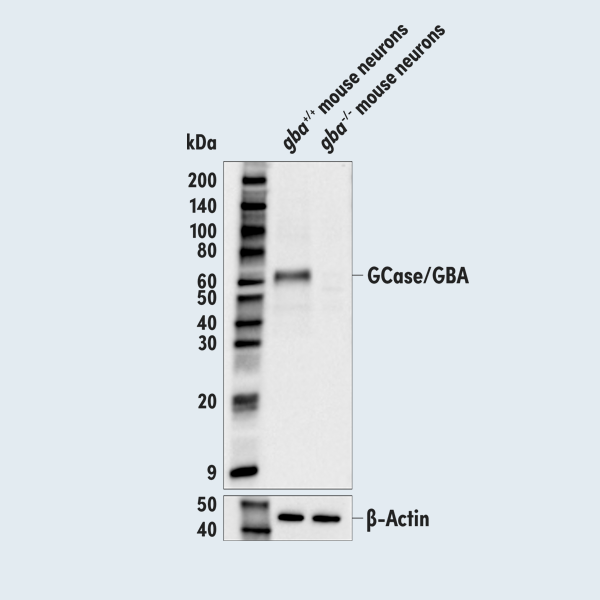
GCase: A Lysosomal Enzyme Implicated in PD
GBA mutations may play a direct role in accumulation of α-synuclein by mechanisms that are poorly understood, but may include mislocalization of lysosomal GCase causing impaired lysosomal degradation of α-synuclein. In collaboration with the NIH, CST product #88162 has been validated with knock-out mouse neurons.
GCase/GBA (E2R1L) Rabbit mAb #88162Ready-to-use ELISA Kits enable detection of endogenous protein expression.
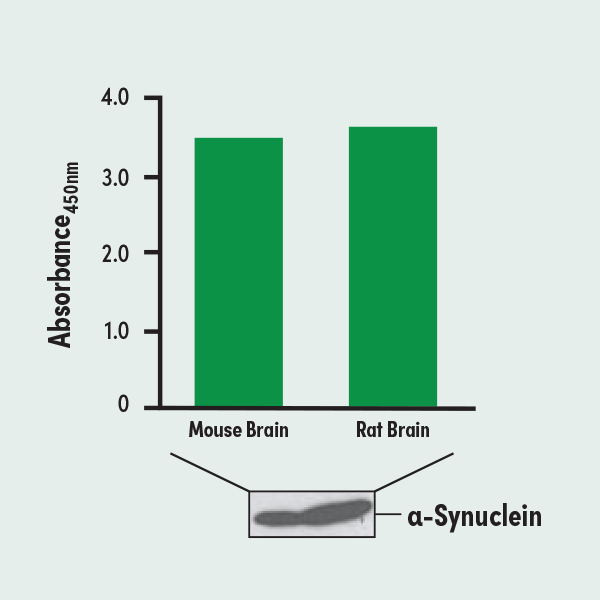
α-Synuclein: Ground-Breaking CSF Biomarker for Early PD Diagnosis
Synuclein pathology is one of the two biological hallmarks of PD. Recently, α-synuclein was shown to indicate PD before symptoms arise with high diagnostic accuracy and the ability to differentiate molecular subtypes, providing a critical tool for early detection of disease pathology, clinical trial design, and assessment of treatment effects.
PathScan® Total α-Synuclein Sandwich ELISA Kit #54269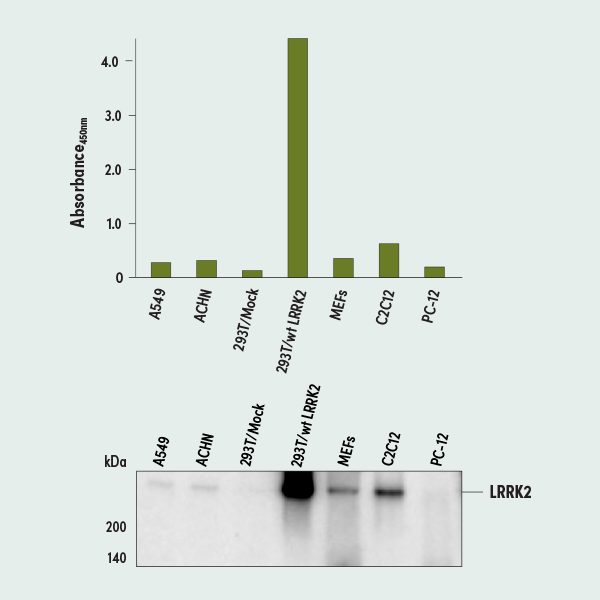
LRRK2: A Promising Therapeutic Target for PD Treatment
At least 20 LRRK2 mutations are linked to PD. The G2019S mutation is the most prevalent, causing increased LRRK2 kinase activity that induces a progressive reduction in neurite length and leads to progressive neurite loss and decreased neuronal survival.
PathScan® RP Total LRRK2 Sandwich ELISA Kit #69930The same Matched Antibody Pairs found in ELISA Kits are also available for purchase separately. Conjugation to biotin, Phycoerythrin (PE), and other fluorescent dyes is available. Matched Antibody Pairs are best suited for use in high-throughput ELISA-like technologies, such as MSD, Quanterix Simoa, AlphaLISA, TR-FRET, and more. Contact us for availability, lead times, and pricing.